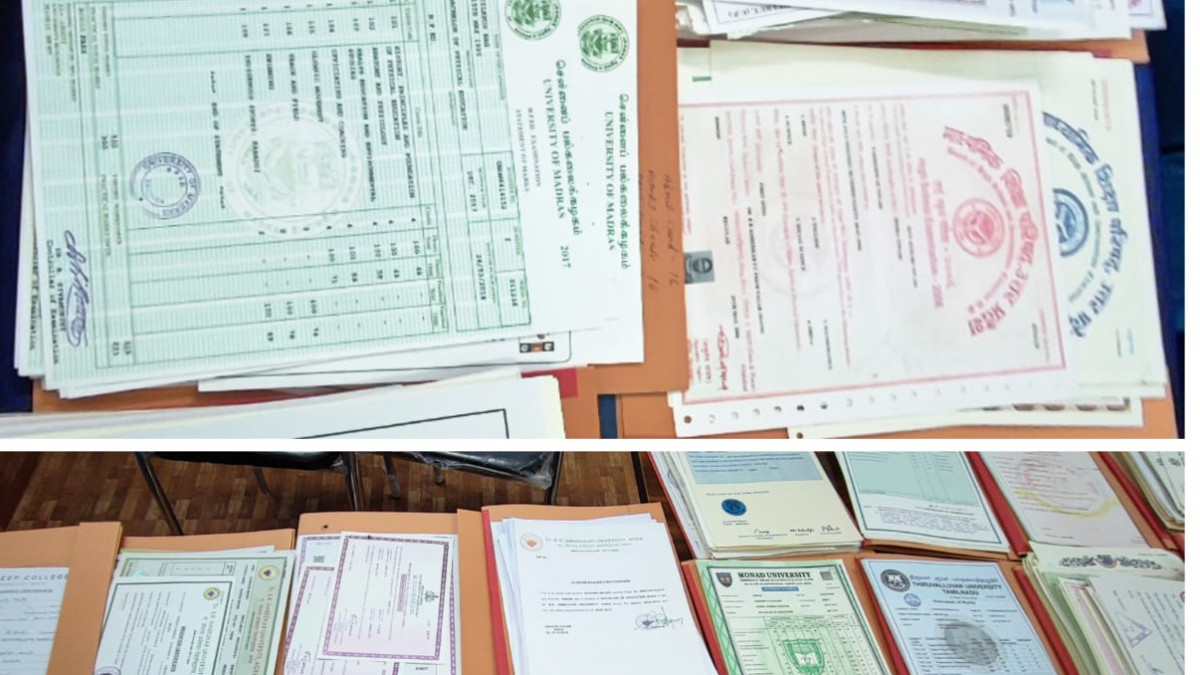A lot of people purchase fake degrees to boost their resumes. Some people want to jump several ranks on the corporate ladder, without having to invest the time and energy required to get there.
If they employ employees who have fake degrees, the business risks losing their reputation and the trust of clients or customers who appreciate integrity. The companies also risk legal liabilities and financial sanctions.
Public Perception
Certain people are forced to purchase fake degrees in order to be able to compete for lucrative job or promotion. Some people may purchase fake degrees to avoid paying the higher cost of tuition to legitimate universities. Whatever the reason, fake credentials are a risk for both businesses and individuals. While they can compromise the legitimacy of hiring procedures and threatening the reputation of institutions who offer false credentials.
The growing popularity of fake degrees business is driven by the ease in which consumers can buy high school, college and university diplomas on the internet. These websites feature authentic-looking elements such as seals from institutions as well as registrar signatures, certificate numbers and logos. Many also have a gallery of pictures taken during graduation ceremonies to give an impression that the graduates received their diplomas from real universities.
Verifile, an educational credential verification firm states that a few employers do not check the authenticity of the degrees of their applicants. They are vulnerable to fraud, for example when someone who claims fake degrees is discovered on the job doing something unethical or dangerous.
In these cases, an employer can be held liable for the damage caused by an untruthful employee. A doctor who has fake credentials and is not licensed for instance, can make someone seriously ill.

Survey on Academic Credentials
It was difficult to quantify non-degree certificates until recently. The Lumina’s measuring Alternative Educational Credentials is a unique survey that provides the education community an exclusive perspective of the market for professional certificates, badges and other non-degree credentials, as well as their relation to labor market outcomes and go now https://lambang247.pro/.
This research reveals the fact that these certificates are highly valuable even though they are largely unknown by the general public. On average, those who have an alternative credential are more successful than those who don’t hold one at every degree level below the bachelor’s level.
More than two-thirds (67%) of institutions surveyed offer a different credential and many are expanding their offering. This study suggests that students are willing and able to make the investment in alternative credentials due to the fact that they are looking for flexible options for improving their skills and becoming more employable.
The survey also finds that most higher education leaders believe that micro-credentialing is going to become a part of their institution’s curriculum, and they are increasingly utilizing these credentials as alternatives to engage students in new ways and provide higher-quality, industry-focused education. However, barriers remain in the way of adoption in a mass an institutional level. A third (32 percent) of those surveyed said that they did not have a micro-credentials policy. This is down from 22 percent in the year 2020. Additionally, there are still issues with recognition and quality control, though these are somewhat less pronounced than they were in 2021.
The fake degree can have a negative impact on employment
Fake degree manufacturing is an exploding industry that has exploded across the globe. According to the National Student Clearinghouse, it is a multi-billion dollar business that provides falsified academic credentials.
There are a variety of reasons individuals would attempt to fraudulently get a degree. One of the most prevalent motives is credentialism. Employers require college degrees to be considered for certain jobs, which creates a need that isn’t necessarily fulfilled by legitimate candidates. The signaling function of college degrees is a further motive. They signify an individual’s social standing and achievement in a positional culture (see Solnick & Hemenway’s analysis).
It can be difficult for businesses to keep track of degree mills or counterfeits. However there are a few methods they can employ to limit the risk. Engaging a third party service that specializes in background checks and credential verification is one option to minimize the threat. These companies provide expert advice as well as additional resources to conduct thorough verifications.
Businesses are also able to conduct thorough interviews, check references and consider the candidate’s academic credentials. It is also crucial to educate HR personnel on red flags which can identify fraud or forgery. Additionally, businesses can invest in technology that will streamline the verification process. This will make it easier to detect fraudulent academics. It is the only method to ensure that the company recruits the top talent available and doesn’t damage its reputation because of the incompetence of employees.
Diploma Mills and Fraudulent Degrees
A diploma mill is an establishment that dispenses a fake academic degree without any effort or passing tests. The diploma mill operates on the internet or in small offices and provides degrees that look authentic. They often offer credit for experience or personal experiences. They also use names that sound uncannily like well-known institutions.
The industry is growing because people are eager to find jobs quicker and advance their careers particularly in developing countries who are attracted by the prospect of earning a degree with the American sound. They are willing to pay higher prices to get the degree instead of following traditional routes.
The consequences of using fake certificates can be significant, both for an individual and the society. Despite its considerable size and scope it is a fact that the business of selling fake degrees is still largely unstudied. To lessen the negative impact of this shady practice, policymakers need to think about a range of options.
For instance, credential evaluations and personnel from human resources should examine every credential carefully for the telltale signs of fraud. They must be taught on this subject and the importance of credential verification, so they can make informed decisions. This can be accomplished with the assistance of the record department at the school. It is also important to pass legislation that makes it illegal in the United States to use or have a fraudulent degree and with the appropriate sanctions.




